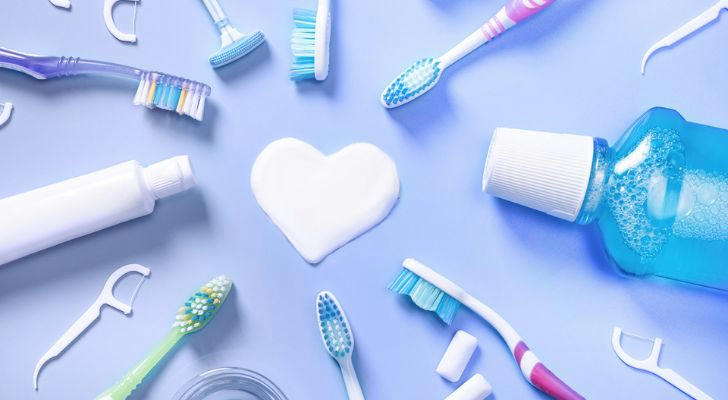Essential Dental Care: Tips for Healthy Teeth and Gums
Maintaining good dental health is essential for overall well-being. Regular dental care not only helps prevent tooth decay and gum disease but also contributes to a brighter smile and better self-esteem. With proper brushing, flossing, and routine dental visits, you can ensure that your teeth and gums stay healthy for years to come.
Let’s explore the key components of dental care, from daily habits to professional treatments, so you can maintain optimal oral health.

Why Dental Care Matters
Preventing Tooth Decay and Gum Disease
Proper dental care helps prevent the buildup of plaque, which can lead to tooth decay and gum disease. Without effective care, plaque can harden into tartar, leading to more serious dental issues such as cavities, gum infection, and tooth loss.
By maintaining healthy teeth and gums, you not only avoid pain and discomfort but also improve your overall health. Studies show that oral health is linked to conditions such as heart disease and diabetes, making it essential to prioritize dental care.
Boosting Confidence with a Healthy Smile
A bright, healthy smile can improve your self-confidence and social interactions. Regular brushing and professional cleanings help maintain a sparkling smile, preventing discoloration and bad breath that may affect your social life.
Dental care also plays a crucial role in maintaining overall appearance, as missing teeth or visible dental problems can have a significant impact on one's self-esteem.

Key Components of Dental Care
Proper Brushing and Flossing Techniques
Daily brushing and flossing are the foundation of good oral hygiene. Key tips for effective brushing and flossing include:
• Brush Twice a Day: Use fluoride toothpaste to brush for at least two minutes, ensuring you clean all surfaces of your teeth.
• Use the Right Toothbrush: Choose a soft-bristled toothbrush that can reach all areas of your mouth without causing irritation.
• Floss Daily: Flossing helps remove food particles and plaque between teeth, where toothbrushes can’t reach.
• Tongue Cleaning: Gently clean your tongue to remove bacteria and prevent bad breath.
Establishing a consistent brushing and flossing routine helps prevent plaque buildup and maintain a healthy smile.
Regular Dental Checkups
Visiting your dentist regularly for checkups and cleanings is essential for maintaining good oral health. Professional cleanings remove tartar and plaque that build up over time, while a dentist can spot early signs of tooth decay, gum disease, or other oral health issues.
Most experts recommend scheduling a dental checkup every six months, although some individuals with specific dental concerns may need more frequent visits.
Diet and Nutrition for Oral Health
What you eat can significantly impact your dental health. A balanced diet rich in essential nutrients promotes healthy teeth and gums. Key dietary tips for oral health include:
• Eat Plenty of Calcium-Rich Foods: Foods like dairy, leafy greens, and almonds help strengthen tooth enamel.
• Limit Sugary Snacks and Drinks: Sugary foods can lead to tooth decay by feeding bacteria that cause cavities.
• Drink Water with Fluoride: Fluoridated water strengthens teeth and helps prevent cavities.
• Avoid Acidic Foods: Foods like citrus fruits and soda can erode enamel if consumed in excess.
A healthy diet supports strong teeth and gums and minimizes the risk of cavities and gum disease.
Preventive Treatments
In addition to regular brushing and flossing, several preventive treatments can help protect your oral health:
• Dental Sealants: These thin coatings protect the surfaces of molars from decay, especially in children.
• Fluoride Treatments: Fluoride strengthens tooth enamel and helps prevent cavities.
• Mouthguards: For individuals who grind their teeth or play contact sports, mouthguards help prevent damage to teeth.
Preventive treatments provide an extra layer of protection against common dental problems.
Steps to Maintain Optimal Dental Health
Brush and Floss Regularly: Maintain a consistent routine of brushing twice a day and flossing daily.
Visit the Dentist Regularly: Schedule checkups and professional cleanings every six months.
Eat a Balanced Diet: Focus on foods that support oral health, such as those rich in calcium and low in sugar.
Protect Teeth from Damage: Consider sealants, fluoride treatments, and mouthguards to protect your teeth from damage.
Avoid Smoking and Excessive Alcohol: Smoking and excessive alcohol can increase the risk of gum disease and oral cancer.
Final Thoughts
Good dental care is an essential part of overall health and well-being. By following the right oral hygiene practices, visiting your dentist regularly, and maintaining a healthy diet, you can keep your teeth and gums in top shape.
Supporting Data and Oral Health Insights
Tooth Decay and Cavity Prevention: Research shows that individuals who brush and floss regularly are 40% less likely to experience tooth decay.
Impact of Gum Disease: Studies indicate that up to 50% of adults have some form of gum disease, which can lead to tooth loss if left untreated.
Dental Checkups and Early Detection: Regular dental visits allow for early detection of oral health issues, reducing the need for costly treatments later.
By prioritizing dental care today, you can enjoy a lifetime of healthy teeth and gums. Start implementing these habits now for a brighter, healthier smile!
